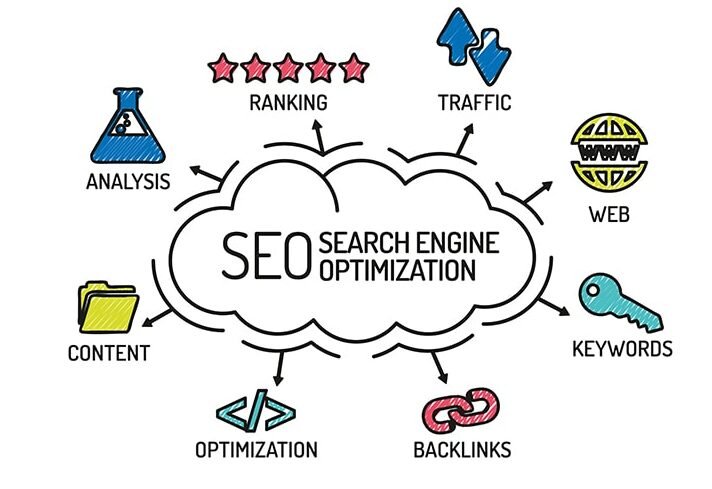Managing a blog can be quite challenging, especially when it comes to deciding when and how to add content.
The purpose of this article is to provide insights into monthly content planning and help you get started in the right direction.
I will also address some common concerns associated with blog publishing and demonstrate how third-party software packages can help you overcome them. It’s always better to work smart than to work hard.
Monthly Content Planning 2025: Clarify Your Goals
Before delving into the specifics of content planning, it is pivotal to stress the importance of starting out in the right direction.

Image Source: Pexels
This is why any type of blog template should begin by highlighting your goals. Here are some common examples:
1. To sell a specific product or service.
2. To gain followers over time.
3. To earn a profit through affiliate marketing strategies.
4. To use the blog as a means to increase the digital “footprint” of a separate domain (such as a standalone website).
Obtaining this level of foresight is crucial, as different objectives may require different approaches to how often you should post, as well as the audience that you wish to target.
Furthermore, clearly defining your intentions will help to avoid any confusion in the future. I will now begin to examine the actual concept of planning and the associated advantages in greater detail.
The Benefits of Regular Planning
Regularly planning when blog content is introduced offers several tangible benefits. A handful of the most relevant include:
Image Source: Pexels
1. Adhering to a tight schedule
2. Optimizing your time.
3. Providing a sense of consistency to your publications.
4. Thematic coherence.
As I can see, some of these advantages impact the blogger, while others are meant to appeal to the reader.
How to Structure Your Editorial Calendar
How can you begin to create a personalized editorial blogging calendar? While the process will vary between content creators, several steps should nonetheless be addressed, such as:
Image Source: Pexels
1. Choose the specific publication dates.
2. Determine which type of format is the most suitable for your blog.
3. Highlight the topics to address in alignment with your short- and long-term objectives.
Let us continue by looking at each point in slightly more detail.
Publication Dates
How frequently should you post updates? Most experts agree that new content should be added at least once per week.
This will help to ensure that readers are entertained with new material, and fresh content is important in terms of boosting your SEO rankings (more on this subject a bit later).
However, there can also be times when more frequent publications are warranted. For example, some bloggers will write three or four posts each week in order to create a sense of urgency.
This is a common practice employed when marketing a product or service. There can also be instances when a certain topic has garnered a fair amount of attention.
In these cases, it may be better to keep subscribers “hooked” so that their interest remains piqued.
Format
Planning a blog does not only involve the curation of well-written content that appeals to the reader.
Aesthetics will also have an impact on how the blog itself is perceived. Planning ahead in terms of formatting is, therefore, yet another piece of this digital “puzzle.”
Image Source: Pexels
The only possible issue here is that those who are new to the editorial process might not be certain where to begin. This is why third-party planning tools are powerful options at your disposal.
They will provide attractive formatting templates, and thanks to their drag-and-drop nature, little technical experience is required.
It is, therefore, possible to publish a visually appealing post in a fraction of the time that would otherwise be needed.
Subject Matter
Assuming that you are publishing a blog with the intention of gaining followers, increasing online exposure, or earning an income, content is king.
This is another way of stating that the topic being discussed can often spell the difference between digital success and online anonymity.
Research will once again come into play here. When creating an editorial calendar, the material itself is just as important as when the posts are actually scheduled.
It makes little sense to spend a great deal of time creating content only to realize that it has fallen upon deaf ears.
Still, note that the topics themselves may change on occasion in relation to your objectives as well as how the audience responds to specific material.
This is why adopting a somewhat flexible approach tends to yield the best results. This final point also leads us directly into the following section.
Integrating Themes and Strategies
All of the most popular blogs follow a clear path in terms of how the content evolves around themes that often vary from month to month.
Some variables that should be taken into account include (but may not be limited to), the launch of a new product, introducing a novel marketing campaign or the time of the year.
An example can help to reinforce this point.
Image Source: Pexels
Imagine that your blog mainly highlights money-saving tips that can be used throughout the year.
Posts curated during the month of November could highlight Black Friday sales, while those written in late August might instead mention back-to-school bargains.
The appropriate outbound links can then be added within the text, enabling the blog to offer a relevant edge while reaching a large audience.
The Importance of a Social Media Planner
There is little doubt that social media represents one of the most powerful online marketing tools at your disposal.
Image Source: Pexels
Not only are sites such as Facebook and Twitter frequented by literally billions of users each day, but they can provide additional benefits for bloggers such as:
1. The ability to appreciate the latest trends and viral topics.
2. Interaction with other users (invaluable when obtaining feedback).
3. A greater degree of online marketing exposure.
4. Engaging with social media influencers to establish an authoritative edge.
While the points outlined above are clear, the process itself can still be complicated. This is why leveraging the tools found within a top-notch content planner tool is recommended.
These clever software bundles will allow you to save time, target the right audiences, create interactive schedules, and edit content within a centralized platform.
These bundles are also suited for those who do not possess a great deal of previous blogging experience or who lead extremely busy lives.
Their intuitive nature allows users to create timelines, modify publication dates, determine trending hashtags, publish content according to different time zones, and even leverage the power of artificial intelligence (AI) when creating new material.
The main takeaway point here is that such tools can save a great deal of time and effort.
Equitable Content Distribution
Content should be submitted on a regular basis. This provides the blog with a sense of predictability, and therefore, it is likely to attract more subscribers.
Still, analyze important metrics such as what day of the week is associated with high click-through rates as well as specific times when visitors are more likely to read the material (such as during the evening).
These suggestions are important for a handful of practical reasons. Firstly, publishing content at the wrong times could actually hinder your ongoing campaign if the posts go unnoticed.
Another advantage here is that readers tend to gravitate towards blogs that cater to their schedules (a benefit in terms of loyalty).
Finally, tracking publication “windows” over time can provide you with a great deal of insight in terms of how future schedules will be formatted.
SEO Optimization
Search engine optimization (SEO) is equally crucial. Choosing the proper keywords and phrases will allow your content to reach a specific audience while simultaneously increasing your search engine results page (SERP) rankings.
Image Source: Pexels
SERP rankings are specifically relevant, as these will determine the amount of exposure that a blog obtains. An analogy can help to cement this point.
Curating a blog without taking SEO into account is akin to placing a billboard in the middle of the woods as opposed to alongside a major motorway. It will hardly garner the attention that it deserves.
Quality content planning software often takes these concerns into account. These bundles can help to highlight the most industry-relevant keywords and determine which ones rank the highest.
Needless to say, such options will save bloggers a great deal of time and effort when compared to manual SEO planning.
The Role of Media
It is important to remember that managing a blog from month to month involves much more than content curation alone.
Image Source: Pexels
One of the most potent ways to resonate with your audience is associated with embedded media (such as images and videos). These elements serve two primary purposes:
1. To break up what might otherwise be a lengthy block of text.
2. To add an aesthetic appeal to the blog itself.
Still, remember that researching royalty-free images and media files (if you do not have content of your own) can take a significant amount of time.
This may lead to a bottleneck in terms of production if you do not take such digital “legwork” into account. Make it a point to include media research in your overall schedule in order to avoid any unforeseen snags along the way.
Monitoring and Adjustments
Finally, remember that blogging is an ongoing process as opposed to a static model.
Successful bloggers must, therefore, proactively monitor metrics such as subscriptions, click-through rates, which topics are the most popular, and whether publication dates should be adjusted. Let us once again highlight a common example to cement this point.
Imagine that your blog focuses on fashion trends. In this case, various metrics will need to be examined on a frequent basis.
These include seasons, viral posts from other bloggers, price points, and even the latest celebrity red carpet-appearances. Adjustments will, therefore, need to be made on occasion.
This strategy is not solely associated with keeping your readers entertained. Search engines such as Google and Bing love blogs that are regularly updated.
This is actually one of the factors that their algorithms will use to determine your online ranking. The use of a monthly content planning program will allow you to make on-the-fly modifications while appreciating the results of your efforts.
Simply stated, it is always better to ask, “How is my blog performing?” as opposed to “How did my blog perform?”.
Intuitive Optimization and Practical Planning Solutions
Many bloggers have attempted to tackle the topics mentioned above without any type of third-party assistance.
Although this may be possible when addressing only a handful of followers, it becomes exponentially more challenging as the number of readers steadily increases.
This is why some bloggers could actually become victims of their own success.
A content planner represents one of the most intuitive ways to remain one step ahead of the curve while simultaneously creating high-quality content.
As opposed to spending a great deal of time worrying about logistics, you can instead devote your efforts towards engaging with your audience and gaining an even more robust selection of subscribers.
Image Source: Pexels
This is why content planning software has become extremely popular in modern times.
Of course, reaching your ultimate goals will still require effort, dedication, and overcoming the occasional mistake. Content planning platforms are not intended to replicate the creative process.
They have instead been designed to take the digital “legwork” out of the equation in terms of scheduling, formatting, and online exposure.
Feel free to bookmark this article, as the information outlined above will undoubtedly help to take your blog to the next level and beyond.
FAQs
📅 What is monthly content planning for a blog?
Monthly content planning involves strategizing and organizing blog topics, themes, and posts for the upcoming month. It's about setting a clear roadmap for what to publish and when.
🔍 Why is it important to plan blog content monthly?
Planning helps maintain a consistent posting schedule, ensures a diverse range of topics, and allows for strategic alignment with marketing goals or seasonal trends.
📝 How do I start planning my blog content for a month?
Begin by reviewing your blog's goals, audience interests, and any significant dates or events in the upcoming month. Then brainstorm topics and allocate them to specific dates.
📈 How can I ensure my content plan aligns with my SEO goals?
Incorporate keyword research into your planning process. Choose topics that not only interest your audience but also have potential for SEO gains.
🚀 What tools can help with content planning?
Utilize content calendars, project management tools like Trello or Asana, and SEO tools for keyword planning. Google Analytics can also provide insights into past performance.
Quick links:
- How to Plan a Social Media Content Calendar
- What Does ChatGPT Do? ChatGPT For Content And SEO?
- SE Ranking Content Marketing Tool Review
- What Jasper Can Do For You In Terms of Content Creation
- Video SEO Statistics and YouTube SEO: Is Video Content Good For SEO?
Conclusion: Monthly Content Planning 2025
In conclusion, monthly content planning involves setting clear objectives, understanding your audience, brainstorming ideas, and organizing these ideas into a structured calendar.
It’s important to allocate the necessary resources for content creation and publication.
Monitoring the performance of your content and making adjustments based on feedback and analytics is crucial.
At the end of the month, reviewing and reflecting on the content’s success and areas for improvement helps in enhancing future content planning strategies.
This process ensures that your content is effective, relevant, and aligned with your overall goals.













